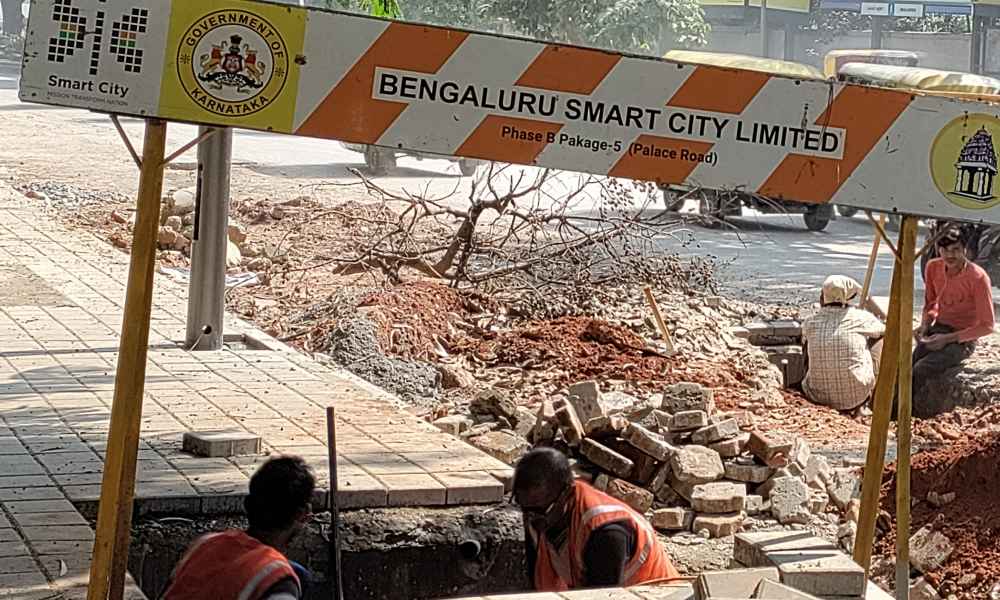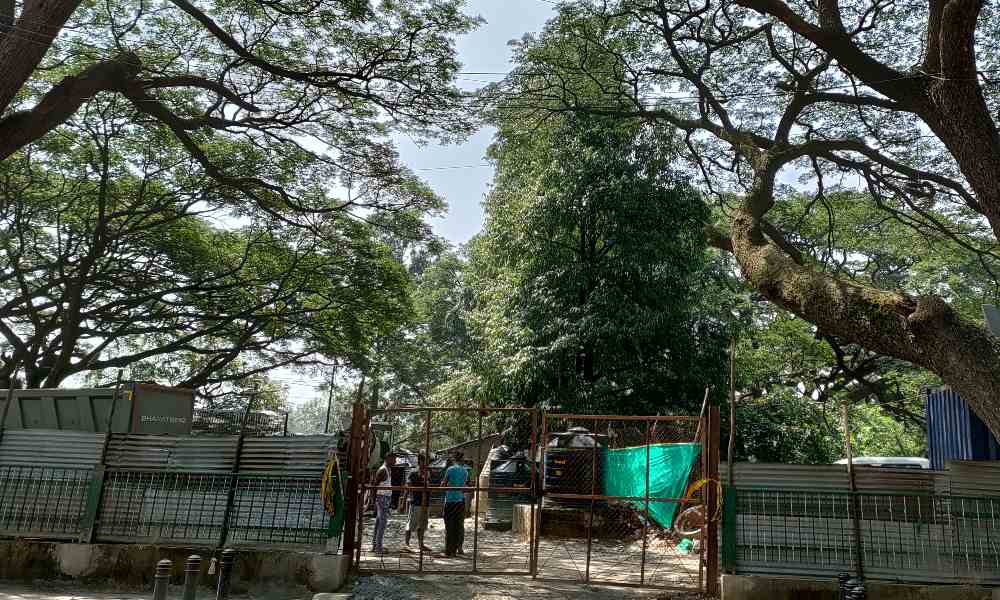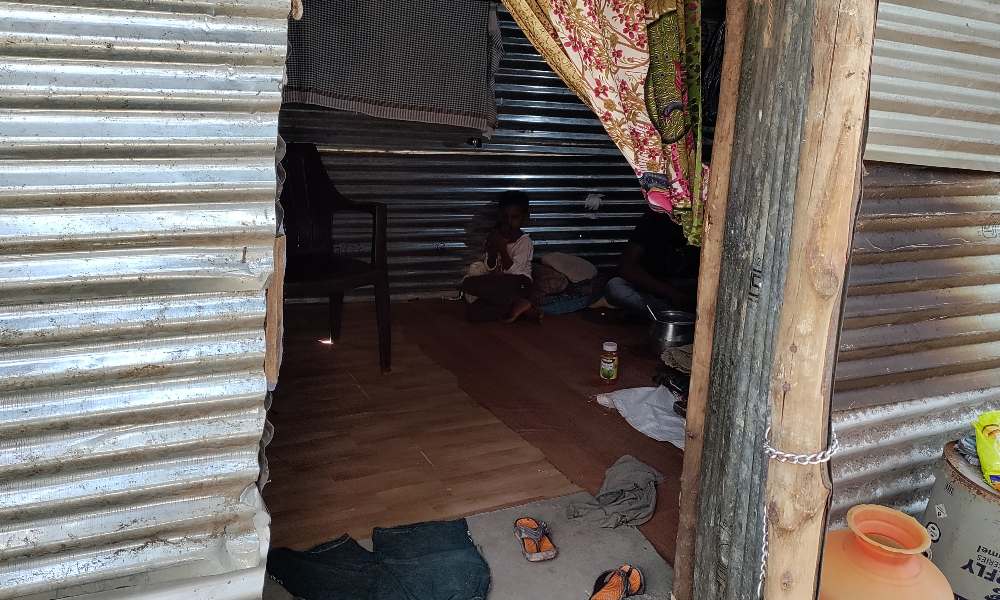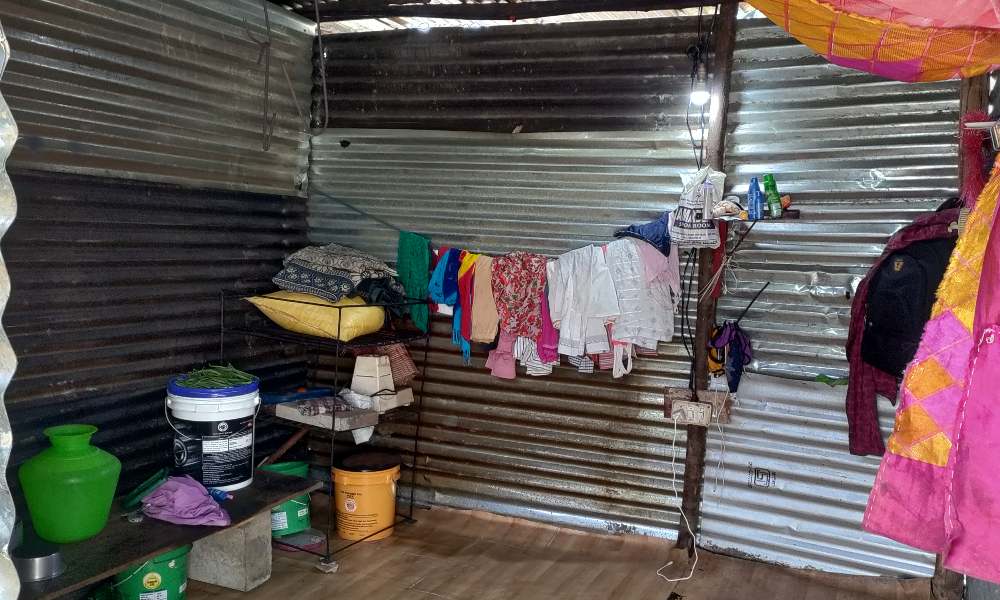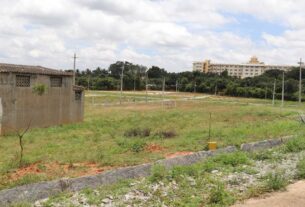The Smart City workers’ children live in tiny tin-sheeted rooms with no water supply or sanitation.
The children of Smart City workers have no access to school.They are malnourished and live in unventilated, unhygienic, tiny tin-sheeted rooms.
“We have been living here for the past one and a half years, and were not allowed to go back during the lockdown. We are barely surviving and both our children are suffering the most,” said Meera, wife of one of the workers. Meera and her husband, Awdhesh Ram, hail from Sehersa, Bihar. They live in a settlement opposite Hosmat Hospital beside Garuda Mall in Ashok Nagar. “Our children used to attend government school back home but had to drop out after we shifted to Bangalore for work,” said Awdhesh Ram.
Gopal Reddy, Assistant Engineer of Bengaluru Smart City Limited said,” We have provided site containers for the workers to live. We didn’t allow them to leave during the lockdown because they might have not come back.” He added,“We even provided them with groceries before the lockdown to avoid any inconvenience to them and their children.”
A report suggests that about 70 percent of the children living on construction sites suffer malnutrition. The Building and Construction Act, 1996 states that,” If more than 50 female workers are employed, rooms should be provided for the use of their children.”
Nishita Khajane, Advocacy officer for the Concerned for Working Children said, “There is need to empower these children and educate them about their rights rather than acting as their spokesperson because not all children can afford to quit working. When children reach the age of 15 or 16, they are often made to quit school to work or to take care of their younger siblings. She added, “Children of migrant workers are most affected because there is language barrier and the parents are hesitant to send their children to school. So, they often drop out.”
Over Rs 2500 crore has been spent on the Bengaluru Smart City project so far. The projects are jointly funded by the Centre and State governments. The project aims to provide a decent quality of life for the citizens of Bengaluru. The aim is to provide a clean and sustainable habitat to the residents of the city. But no arrangement has been made for the workers to live. Mohan Bhauwmit, a worker said, “I work under a contractor and I earn Rs. 62 per hour. I can’t afford to send my nine-year-old son to school. We barely manage to eat with my daily wage.”
His wife, Riti said, “I try to keep the house as clean as possible because my son is very weak. We won’t be able to afford to see a doctor if he gets sick.” She added, “We are adults, we manage somehow, but children are very fragile. Keeping him off the street is a task alone.”
Rudra Pratap Singh, a lawyer at Patna High Court said, “Under section 34 of the Building and Construction Act, the employer must provide free accommodation within the working site with proper sanitation and water supply.” He added, “But generally contractors just provide shabby accommodations and don’t follow the provisions of the Act.”
Nashar-Uz-Zoha who runs ‘Aayam’ NGO said, “Often the children of daily wage workers don’t have access to the bare minimum. They are the most affected and ignored beings in these kinds of situations. A healthy environment is very important for the physical as well as mental development of the children.” She added, “The situation has worsened after the pandemic.”


